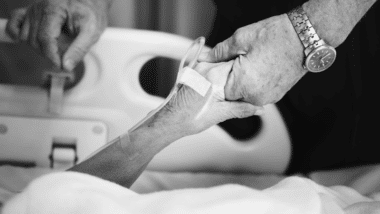Most medical students at an Irish University say they support ‘physician-assisted dying’ (PAD), but only a small minority would be willing to carry it out personally.
A survey conducted by Trinity College Dublin of 200 budding medics revealed three in five supported changing the law to allow vulnerable people to get help from doctors to kill themselves, with only 14 per cent saying they opposed a change.
However, despite the support, fewer than one in five (18.5 per cent) said they would be willing to personally administer life-ending drugs to patients.
Geriatric medicine
This was the first time a study had examined the attitudes of medical students in Ireland, and the study’s authors noted that the discrepancy between theoretical support and willingness to participate illustrates “the subtle nuances central to the PAD debate, highlighting the complexity of the issue”.
They noted that in their own study, there were no significant changes in the levels of support as students progressed through medical school, although they noted this was in sharp contrast to a study in New Zealand. That research showed that the further through their education they were, the less likely medical students were to support assisted suicide.
This is consistent with the “significant body of evidence showing that physicians are less in favour of PAD than the general public”, with the authors adding that this is “particularly true in specialties with greater exposure to terminally ill patients”.
An earlier study highlighted by the researchers showed that “over 70% of Geriatric Medicine and Palliative Care consultants opposed PAD”.
Inconclusive
However, this was not true among Trinity College students, with those who had experienced rotations in geriatric medicine no more likely to oppose assisted suicide than those who hadn’t.
The study’s authors explained: “While one might expect that student and physician attitudes to PAD would be closely aligned, there are several potential reasons for the observed differences. As students do not have any clinical responsibilities, even those on rotations in specialties such as Geriatric Medicine are often removed from the practicalities of end-of-life care.”
The academics acknowledged the limitations of drawing too many conclusions from their study, particularly given that the data had been taken during a small window which coincided with final exams for fourth and fifth year students. Only eight students in their final year of study completed the survey.
They also noted that the study had been taken from just one university, meaning it could not reasonably be representative of the approximately 6,500 medical students across Ireland.
MPs champion a society of ‘hope and value’ over assisted suicide
Scottish Parliament must avoid perceived ‘bias’ over assisted suicide Bill
Belgium: Insurance boss backs euthanasia for elderly to save money



